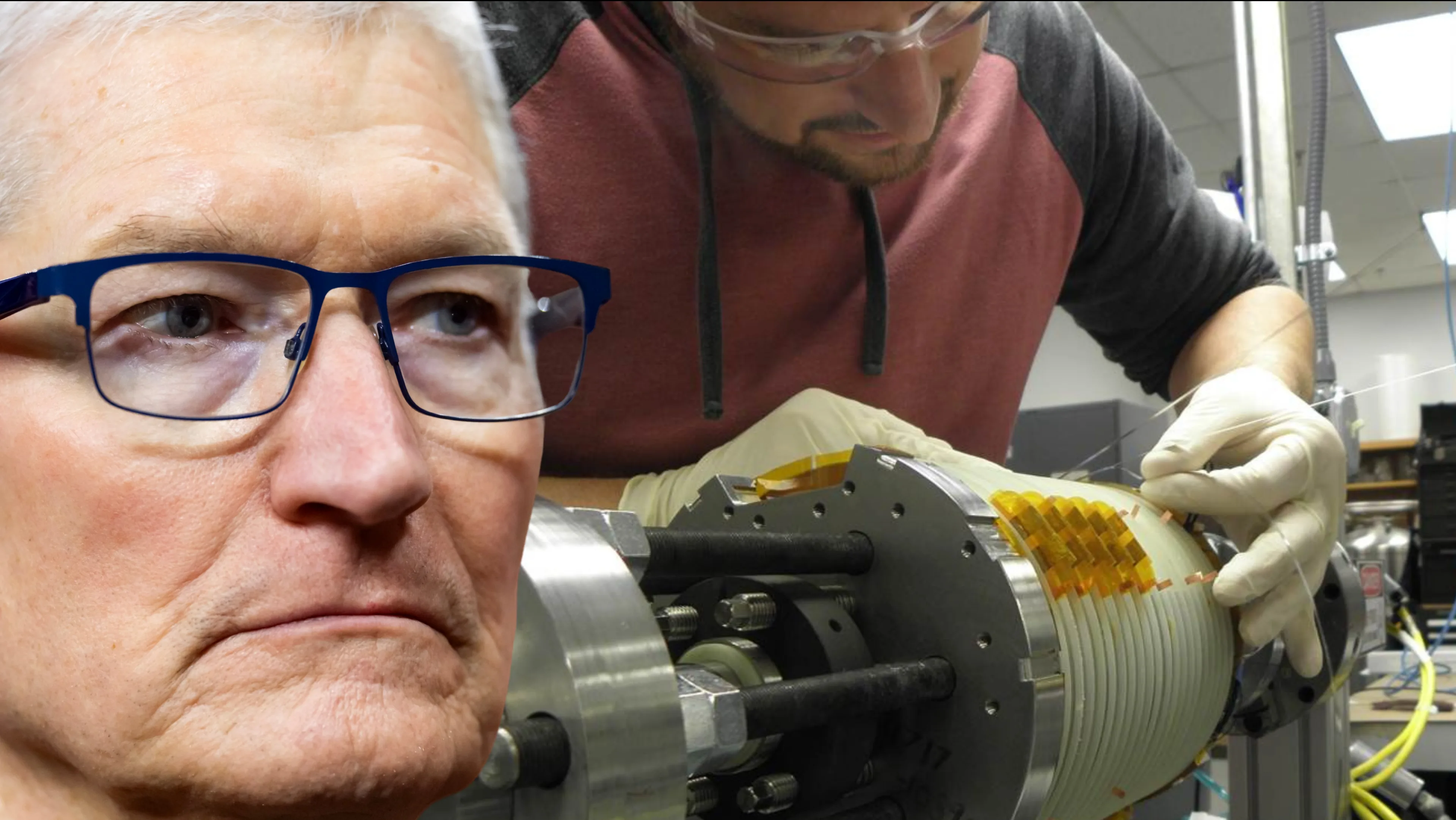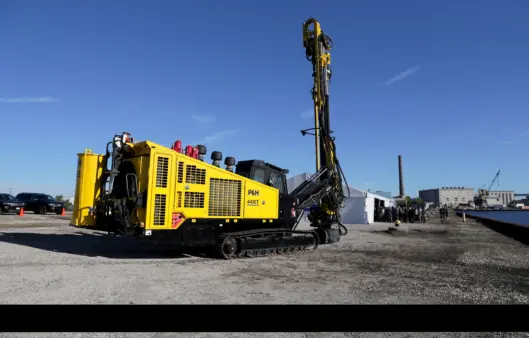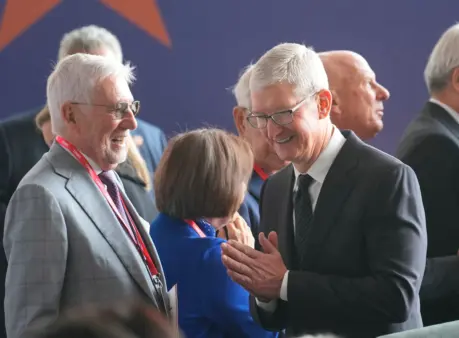
© Mark J. Rebilas-Imagn Images + © National MagLab/Special to the Democrat, National MagLab/Special to the Democrat
(New York, NY) – A fascinating development took place this week, as Apple announced a $500 million investment in a mining company, based in Las Vegas. MP Materials saw its share price skyrocket as a result. The firm recycles rare earth magnets, as used in consumer electronics, renewable energy systems, and cars.
Apple officials describe the move as in line with their broader, $500 billion move to expand its onshore production — after years of reliance on China. That would seem to make good business sense amid ongoing geopolitical tension across the globe — and ongoing trade talks — involving the US and Beijing. But there’s a deeper, less commonly discussed aspect of the move.
The deal between Apple and MP Materials involves the tech giant purchasing rare earth magnets — as developed at MP’s facility in Fort Worth, Texas. But the two companies will also partner on a new facility in Mountain Pass, California.


On X, user Lucien Wolfe made an apt observation, as part of a post discussing Apple’s investment. He noted that the mine in California was previously rejected twice, around 10 years ago — based on the “environmental risk.” So why the change now? Wolfe suggests it’s tied into artificial intelligence (AI), national security, and the risks associated with not having enough raw materials for the coming tech revolution.
As part of the 2024 The National Defense Authorization Act (NDAA), the mine was fast tracked, reversing the previous environmental opposition. It’s also true that during President Trump’s imposition of tariffs, and as part of his broader “America First” agenda, many companies have adopted a similar stance. Still, in 2020, Apple was part of a tech coalition that lobbied against US rare earth independence. At that time, 83% of their supply came from China.
For years, there’s been an admission that World War III will be fought more by computers than by human hands. AI and its various applications has excited the financial world and entrepreneurial spirit — but it’s also led to a sort of digital arms race. And the new tanks, missiles, and bombs, are chips, satellites, and electrical grid infrastructure.
Look no further than Steve Forbes for a hint as to what needs to happen next. The longtime financial magazine publisher and former candidate for president recently flagged an opinion piece from Fox News on his X account. Forbes was highlighting an article that said America can lead the AI revolution, though he was also noting what’s required. In a word, power. Lots of energy will be needed as the combined computing power and processes associated with AI come to fruition.
Forbes was pointing out that industry leaders recently met in Pittsburgh to discuss how natural gas can drive America’s burgeoning need for power, amid the growth of AI. The US has one of the world’s largest natural gas reserves — and as such it’s a natural answer to the power question.


Apple released a statement announcing the investment in MP Materials. CEO Tim Cook said “American innovation drives everything we do at Apple, and we’re proud to deepen our investment in the U.S. economy. Rare earth materials are essential for making advanced technology, and this partnership will help strengthen the supply of these vital materials here in the United States.”
It’s certainly a significant move for Apple and the company’s investors. But pay close attention to MP Materials’ other major investors — earlier in July, the Department of Defense became the rare earth miner’s largest shareholder. At that time the DOD purchased $400 million in preferred stock, all in a bid to increase the military’s “on shore access” to rare earth magnets.














